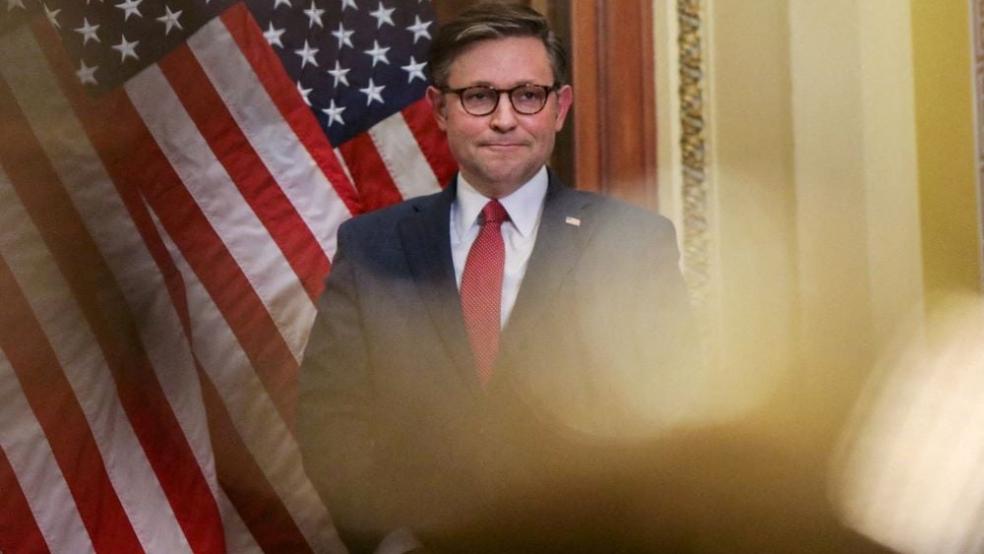Congress will return to Washington next week with just days to go before the first of two deadlines to fund the government and keep agencies operating.
As the March 1 and March 8 deadlines draw near, Republicans reportedly remain divided over their strategy for the spending bills — and a group of key House Democrats is reportedly warning Speaker Mike Johnson and the other congressional leaders to steer clear of the divisive “poison pill” policy riders that House Freedom Caucus conservatives have sought.
“We are extremely concerned that the House Republican Leadership continues to advocate for policy riders that have been shown time and time again to be unpopular with the American people and obstacles to completing the appropriations process,” 14 House Democrats wrote in a Friday letter to congressional leaders. “Clean funding bills – free of contentious poison pill riders that members of both parties oppose – represent the best path forward as we work to fulfill our duty to the American people to keep the federal government running.”
The letter also called for keeping non-defense discretionary spending at the $773 billion level agreed to last month by Johnson and Senate Majority Leader Chuck Schumer.
The Democrats’ letter, first reported by Axios, comes after 28 House Freedom Caucus conservatives on Wednesday sent their own letter to Johnson seeking details on the status of the appropriations talks and more than 20 of their desired policy provisions, including ones related to abortion, guns, diversity initiatives and border security. The list includes a proposal to cut Homeland Security Secretary Alejandro Mayorkas’ salary to $0 and another to defund organizations such as the World Health Organization and World Economic Forum.
The conservatives’ letter warned that failing to eliminate funding for programs and personnel that Republicans oppose will reduce the probability that a majority of the GOP majority will support the appropriations bills.
They added: “If we are not going to secure significant policy changes or even keep spending below the caps adopted by bipartisan majorities less than one year ago, why would we proceed when we could instead pass a year-long funding resolution that would save Americans $100 billion in year one?”
The year-long funding bill conservatives mentioned would trigger across-the-board 1% spending cuts under the terms of last year’s Fiscal Responsibility Act, the bipartisan deal to raise the debt limit.
But defense hawks oppose such sweeping cuts, adding to the GOP divisions over the funding plans. “A 1% cut to defense won’t fly. The current proposal didn’t keep up with inflation as it is, and the military is decreasing the number of F-35s and attack submarines they’re buying,” Republican Rep. Don Bacon of Nebraska told Semafor.
All eyes on Johnson: After agreeing to a $1.66 trillion discretionary spending topline last month, Johnson must decide how he wants to approach this funding deadline, knowing that Democratic votes will be needed to enact any spending bill and avoid a shutdown. Will he push ahead with a bipartisan deal, even if it could mean a right-wing push to oust him? Will he press for conservative positions, even if means a politically damaging shutdown? Will he pursue a full-year stopgap as a fallback that conservatives would accept?
“I’m worried. Of all the scares we’ve had since the last fiscal year, I think this is going to be the scariest. I think we could be in a world of hurt,” one unnamed Senate GOP aide told The Hill. “I don’t know if it’ll be a partial or a full, but I think the chances of a shutdown are the highest we’ve had this fiscal year.”
What’s next: A spending deal could be announced by negotiators as soon as Sunday, with many on Capitol Hill expecting that another stopgap spending bill — the fourth for fiscal year 2024 — will still be needed to avert a shutdown and buy time for the annual appropriations bills to be passed.





